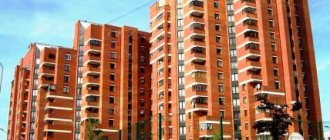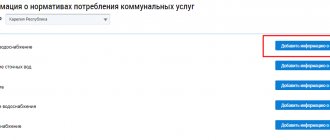What is included in the rent
Cold, hot water, electricity, heat, gas, domestic gas, sewerage, solid waste removal are included in our monthly fee. In practice, rent is determined by payment for house maintenance services individually for each person. The payment receipt contains the item “Payment for housing maintenance.” This includes amounts for maintenance, routine repairs, seasonal work, as well as major repairs of an apartment building.
- inspection of the house property by representatives of organizations;
- guaranteeing high-quality lighting in all common areas;
- organizing cleaning in corridors, elevators, and surrounding areas;
- creating conditions to maintain temperature and humidity in public spaces;
- compliance with fire safety standards;
- removal of household waste and garbage;
- organizing seasonal work to maintain home improvement;
- performing routine repairs and overhauls.
What is seasonal work
Seasonal work on maintaining a house on several floors and apartments includes activities such as:
- repair, strengthening of facades, information devices, porches, doors, roofs, gutters, walls, windows;
- maintaining wooden structures in proper condition;
- arrangement of the local area (painting gates, fences, bars, installing and painting ballot boxes, hanging flags);
- landscaping and maintenance of the local area;
- repair and painting of children's and sports grounds;
- removing snow from driveways, on sidewalks, using sand or salt to remove ice, and clearing ice;
- lawn care, sidewalk wetting.
The list of services may change and be supplemented. Some points are discussed and adopted at a meeting of residents of the building in the presence of a representative of the housing and communal services to which this residential property is attached.
Based on the decision made, a protocol is drawn up and then signed by representatives of both parties. All housing maintenance fees must be agreed upon with the apartment owners. If an apartment owner suspects incorrect charges, he can easily check the tariffs that set prices for the services provided.
What are “non-residential premises”
Residents have many questions and disputes regarding the use and payment of non-residential premises. Based on the definition, these are those objects located on the territory of the house that are the property of the owners. They can have a separate or common entrance, connect to the house’s communications or have third-party connections. Non-residential premises include parking spaces, underground garages, and parking lots.
Common property includes a balcony, loggia, veranda and terraces. The costs of its maintenance must be borne by the owners in accordance with their shares under the right of common ownership of this property.
Main features of non-residential premises:
- The room is isolated.
- Refers to the composition of the building.
- This premises is a non-residential property.
- It is not a place for permanent residence of people, but is intended for public purposes.
Utilities and rent
Another issue that is related to this topic worries the population of our country. We are talking about payment for renting an apartment. Lawyers recommend: in order to insure yourself against controversial issues regarding payment for utilities in a rented premises, it makes sense to conclude a written (mandatory) agreement between the landlord and the tenant. The agreement clearly regulates what services are included in the rent. Only after studying all the subtle points of this burning topic can you feel confident.
In the modern world, as always, payments for housing and utilities remain relevant. The constant housing wars between residents and their management company are endless. This misunderstanding occurs due to the fact that the service provision sector is fraught with many ambiguities, residents do not know their rights, and there is no one to explain them to.
In payment for existing residential premises, there are many options for names: rent, maintenance, payment for all housing services, the rate of management organizations. The cost of major repairs and full maintenance of the premises includes various services and a variety of works for the maintenance of public property of an apartment building.
The existing non-residential premises of the entire apartment building are calculated in a similar amount. Quite often, management organizations inflate payments for the maintenance of non-residential areas, as well as general house needs, justifying themselves by the fact that these premises are visited by a large number of people. The Housing Code of the Russian Federation considers these actions unlawful and a direct violation of the entire current law of the Russian Federation.
Housing utilities refer to activities aimed at creating the most comfortable living conditions for residents of apartment buildings. All consumers are required to know exactly what is included in the list of utility services provided and what satisfies their general household needs.
According to the requirements introduced in 2012, the following have the right to use the provided utilities:
- all residents of the high-rise building and their families;
- persons who received their housing from cooperative organizations;
- all tenants of residential premises;
- tenants renting a room or apartment.
The very concept of these “utilities” has the following general house needs:
The list of all utilities directly depends on the actual amenities of a particular apartment building. In the case where the room does not have a sewerage system, it should not be counted as a service already provided.
Payment for living quarters and utilities has some items that complement general house needs:
- lighting;
- cleaning and ensuring sanitation in all public areas (entrance, stairs) and the land adjacent to the house;
- cleaning waste sites, removing wastewater and generated waste;
- Implementation of landscaping of areas that are part of the house;
- expenses for current, overhaul and full maintenance of the building;
- preparing a high-rise building for seasonal use (heating, insulation);
- costs involving the maintenance of public home property;
- Payments also include inspection of all premises and all related activities.
- Among other things, the disposal of wastewater occupies a separate place in its importance:
- drainage, as well as collection of wastewater (rainwater, collector, sewer network, etc.);
- wastewater treatment using various existing methods.
Recently, strict monitoring of wastewater disposal cost calculations has been carried out. Wastewater treatment using various methods is provided in houses of any type. In multi-storey buildings, wastewater is removed continuously and properly.
The concept of “rent” and everything you need to know about it
Author Ksenia Semenova
06/27/2019 08:23 (Updated: 08/29/2019 18:47)
Real estate
The concept of “rent” is currently used quite rarely. Instead, they began to use another modern name - “utility payments” or “housing and communal services”. All this means one thing - the monthly amount of contributions for the use of various resources, for example, hot and cold water, electricity, heating, etc. The specified information comes in the form of a payment to the postal address of the homeowner on a certain date of the month. If you do not make mandatory payments, an additional penalty will be charged.
Based on the content of Art. 154 LCD, residential rent is divided into two types of payments:
1. For the use of living space. This includes services provided by government organizations.
2. For the maintenance and repair of the premises. This includes services provided by commercial companies.
Tariffs for the previously mentioned services are adjusted by local authorities after an approving decision from government agencies.
In the case where the housing is in social rent, the person is exempt from these payments.
How is accrual done?
The method of calculation and the amount for payment directly depend on the presence of individual metering devices. If they are installed, calculations are made based on meter readings.
If a citizen has benefits, then a percentage is minus from the total amount, which acts as a subsidy.
In a situation where meters are not installed, the calculation is carried out according to the standards that are created by the energy commissions of the subject. The size of the amount is influenced by the dimensions of the apartment and the presence of household appliances, which increase the amount of resources used.
Payment for utility services
Payments for utility services can be made in several ways:
- through the bank. This option is as “old” and accessible as possible. But be prepared for long queues;
- through a bank terminal. The service can be used at any time at Sberbank. Naturally, a queue forms there too, but it moves much faster than in a bank branch. There is a significant drawback - you need to deposit the exact amount specified in the payment slip, since the terminal does not give out change;
- through electronic payment systems. This includes Yandex. Money, WebMoney, Qiwi wallet and others. The downside is a large commission;
- through your personal account at the bank where the plastic card is issued. Fast and convenient payment method, but fees also apply;
- through State Services. Not long ago, a new payment method became available to residents of the country - using the Government Services website. But this function does not work in all subjects of the Russian Federation.
Debt
Debt obligations can arise due to several reasons:
- own reluctance to pay debts. Occurs quite rarely and refers to people who lead an immoral lifestyle;
- inability to make payments. Happens due to loss of ability to work, work, urgent relocation, etc. A person falls into the ranks of debtors not of his own free will, but plans to pay off the debt in the future;
- errors of utility services that made incorrect calculations. As in the first case, this is rare. But no one has canceled the human factor, so it is recommended to always check the amount in the payment slip and compare it with your own calculations.
Based on statistics, only 40% of the population makes payments on time. The remaining part of people pays only for some services, or does not pay at all.
Sanctions for non-payment
For each day of delay, the debtor incurs a penalty in the amount of 1/300 of the Central Bank refinancing rate at the time of formation of debt obligations.
At first the amount is small, but over time it grows and gradually reaches a significant value. Penalties begin to apply from the 3rd month of debt.
In addition, the organization providing utility services can unilaterally terminate the contract and stop supplying the resource. Before these actions, the debtor is sent a notice where a peaceful resolution of the issue is proposed.
If you don’t make payments for a year or more, utility companies can go to court to collect the debt. If the amount of debt is 80% of the value of the debtor’s home, then the court has the right to confiscate the property. However, this will rarely happen. Since in most cases this living space is the only one the debtors have, which means it cannot be taken away.
Photo: 1obl.ru
Determining the amount of payment for housing services.
Payment for the maintenance of various premises should be established in accordance with the law.
In the event that the provision of services does not comply with the law or the provision of services with long interruptions, all changes in payment are calculated in accordance with the established procedure.
General household needs, certain utilities, the procedure for their payment. The article “payment for residential premises and utilities” was changed by law in 2012. Thus, if previously heating, its total consumption was divided by the combined sum of all areas of the premises, now heating, its consumption is divided by the sum of the areas of exclusively residential and non-residential areas, not counting public ones, as a result of which the standard has increased. If a heating meter is installed in an apartment building, the calculation is much easier. The costs do not include heating that has passed by the house. In this case, the owners pay for the received heating upon delivery.
Residents were charged for public heating (entrances). Also, from now on there is no need to pay for the volume of water that was used to water the lawns. General water standards suggest calculating services in a new way, taking into account certain standards: 90 liters per person monthly.
Companies are required to reduce service losses. General house needs in terms of volume must be used within normal limits, and if they are exceeded, then the management companies themselves must pay the entire difference, but in no case the owners. If the contractor is the resource supplier, the entire difference is divided equally between the residents of the house, taking into account the living space available to them.
How to determine improper provision of services? In a situation where housing services are provided with poor quality (there is no heating, the elevator does not work), the contractor does not respond or there is no way to call him, any consumer can independently establish the fact of a gross violation of consumer rights. For this purpose, an act is drawn up in the presence of the chairman of the house council of two more neighbors. The period of poor service provision is calculated from the very moment of signing this act.
If utility workers do not carry out repairs at the entrance or do not clean the area adjacent to the house, the following actions can be taken:
A correct contract for the quality provision of all utilities. Absolutely all residents are required to know what exactly is included in a correct contract for the provision of public services and the procedure for drawing it up.
The management company can enter into an appropriate agreement if the user intends to consume housing services or uses them. The rules establish a period when the contractor is obliged to provide all services or demand payment. Regardless of the type of property, each organization must provide the residents with high-quality general house needs and cannot prevent the user from including any services in the concluded agreement that would allow them to provide a high level of improvement of the given home.
For tenants of a certain premises, a lease agreement must be drawn up. If the contract does not comply with the latest innovations, it is concluded in accordance with all new rules and taking into account the necessary conditions.
definition of what it is, types of housing and utilities and a list of what is included in the list of services
Every person in our country is a consumer of housing and communal services, regardless of whether he lives in his own house or apartment or rents housing. However, many still have little understanding of what this concept includes.
In this article, we invite you to understand once and for all housing and communal services, housing and communal services and utility payments, the procedure for calculating payments and all issues related to the maintenance of houses and apartments.
The content of the article
Dear readers! Our articles talk about typical ways to resolve legal issues, but each case is unique. If you want to find out how to solve your particular problem, please use the online consultant form on the left or call. It's fast and free!
Housing and communal services (HCS)
First of all, it is necessary to define the concept of “utilities”. What is it?
Utilities are the provision of utility resources necessary for comfortable and safe living and use of premises of any type (residential, non-residential, land). Simply put, housing and communal services are various resources that are used by the consumer (resident of an apartment or house).
Types of utilities
There are several types of housing and communal services, each of which has its own purpose and operating features. We will provide a complete list of what is included in housing and communal services, and also indicate the features of each type:
- Cold and hot water supply – supply of cold water to residential and non-residential premises of an apartment building, common premises, residential buildings. Supply is carried out through centralized water supply networks and in-house systems. If they are not available in the house, water can be supplied to the water tap. The supplied water must be suitable for drinking, cooking and household use. In addition, it must comply with temperature standards.
- Water disposal is the removal of wastewater from all premises to which water is supplied. It is carried out through central sewerage networks and the house’s own systems.
- Electricity supply – supply of electrical energy through central and intra-house networks. It is used to ensure comfortable living and sufficient use of various equipment in residential and non-residential premises. It is through the power supply that lighting is provided for both common areas (entrances) and local areas (parking lots, playgrounds). In addition, the electricity supply ensures the operation of elevators in apartment buildings.
- Gas supply – supply of residential and non-residential premises with gas using special systems or, in the absence of such systems, supply of cylinders with household gas.
- Heating is the supply through networks of heat energy necessary for heating residential and non-residential premises, as well as the sale of fuel for stove heating. Heating must be supplied on time in accordance with climatic conditions and the timing of the heating season, as well as in sufficient quantities to ensure the required temperature conditions in the premises.
Housing and communal services (HCS)
- If everything is clear with housing and communal services, then many still have one more question: housing and communal services - what is it?
- Housing and communal services are a full range of activities aimed at maintaining and operating housing.
- In addition to housing and communal services for the supply of water, electricity, gas and heat, housing and communal services also include repairs of buildings and structures, waste collection and removal, concierge services, maintenance of elevators in apartment buildings and much more.
Payment for these services is made monthly and is reflected in receipts. The services provided may vary depending on what exactly was specified in the agreement with the utility provider.
Below is a list of what may be included in housing and communal services payments:
- maintaining housing in a comfortable and safe condition for living, responsibilities for repairs: major, unscheduled and routine;
- waste removal: waste, garbage chute;
- 24-hour security and guarded parking;
- cleaning elevators, entrances, adjacent and common areas;
- concierge services, etc.
Simply put, what is a public utility?
This is the entire collection of various enterprises and services serving the population. It includes housing and communal services, ventilation, low-current networks, fire safety, elevator facilities, sanitary and epidemiological treatment of premises, landscaping and much more.
Utility providers
It is not uncommon for residents of apartment buildings to be unable to answer the question of who provides their home with the benefits of civilization. This is done by a legal entity, regardless of its form, or by an individual entrepreneur who provides housing and communal services to consumers.
Performers can be:
- homeowners association;
- housing cooperative;
- housing construction or other specialized consumer cooperative;
- management organization;
- resource supply organization.
The performer is obliged:
- provide housing and communal services in the required volumes and proper quality;
- technically maintain the building's engineering systems and metering devices;
- make calculations of the amount of payment for housing and communal services and monitor their correctness;
- take readings from common house metering devices;
- provide complete information about yourself, calculated payments, the procedure for calculating fees for housing and communal services, etc.
Current standards
The territory of our country is huge, it is impossible to create a unified standard for housing and communal services consumption. After all, for example, on the same day in different parts of the country the air temperature can differ significantly.
Therefore, it would be irrational to use a single heating volume.
There are many factors that determine housing and communal services consumption standards, the main ones being the following:
- average air temperature outside;
- region;
- level of improvement and infrastructure development;
- features of communal infrastructure (difficulty of delivering resources to a particular place, tariff adopted in the region, etc.).
- If individual meters are installed in a residential premises - apartment or house - residents can independently calculate the amount of payments using a simple formula:
- P=(Vtek-Vprosh)*T,
- where Vtek is the current meter readings,
- Vlast – meter readings for the previous month,
- T – tariff for the service.
To accurately determine meter readings, it is necessary to record them every month; it is recommended to do this on one day.
In addition, many are interested in questions about how rent is calculated and where tenants' money is spent. To find out, just look at the receipts sent - there is a list of utilities and the tariff for each of them, as well as the total amount of payment.
In addition, the rent includes deductions for major repairs of apartment buildings, maintenance of intercoms, costs for elevators, lighting of common areas and other services.
Procedure for calculating utility bills
The accrual procedure depends on whether individual metering devices are installed or the amount of resources is determined by common house meters. Utility payments for apartment residents also include expenses for the general needs of the apartment building.
If there are meters, payments are calculated based on indicators that are recommended to be recorded approximately on the 20th of each month. In addition, devices are required to be checked every 6 months upon prior notification to residents.
Reference. In the absence of individual metering devices, rent is calculated in accordance with the tariff standards established in the given region.
Rights of the utility consumer
Since providing the population with utility services is the same transaction as purchasing goods in a store, consumers of housing and communal services have certain rights:
- on the safety of the consumed service for life, health and the environment;
- on the harmlessness of the service to the consumer’s property;
- to receive housing and communal services of sufficient volume and satisfactory quality;
- to reduce fees for housing and communal services if they are of inadequate quality or untimely provision;
- to make an independent decision about installing metering devices;
- to receive information about the correctness of calculation of the amount of payment for the service;
- for compensation for losses and damage to health and property due to the provision of poor-quality services;
- to receive complete and reliable information about the provider of utility services and the services themselves.
Source: https://sovas.ru/raznoe/kvartplata-i-kommunalnye-platezhi-v-chem-otlichie.html
Payment for housing and utilities: how to reduce utility costs
Situations often arise when it is no longer possible to remain silent in a dispute with your management company and you need to protect your consumer rights. A few simple steps can help here:
- by requesting an official request regarding all tariffs for all expense items, you can find out what exactly is included in the specified list of provided utility services, as well as what exactly the consumer pays for and what services provided are not fully received;
- draw up the necessary act for all housing services that have not been provided over the last month, inviting an employee of your management organization;
- together with an employee of the organization (it is possible without him), it is necessary to draw up a certain act of claim and collect as many signatures of residents as possible;
- submit a corresponding application to the organization for recalculation of all services, with the documents attached;
- if utility companies refuse to carry out recalculation, you must file a complaint directly with the department specializing in the protection of all consumer rights;
- Few people know that the owner has every right to completely refuse some housing services. One of these services is the care and cleaning of stairs.
Paying for housing and utilities is a rather complicated topic for the common person, but knowing the rules, tariffs and your rights, you can reduce your costs for housing services by henceforth paying for the amount that was actually used.
What is rent?
07.04.2018
In accordance with this, monthly receipts are sent to the owner.
Their number depends on how the contracts are distributed between the owner of the property, the management company and resource suppliers.
Some suppliers enter into contracts with the management company (electricity, cold water), others (hot water, major repairs, intercom) prefer to receive money personally from the owners.
The calculation of rent is regulated by the Housing Code.
Article 153 establishes the obligation of owners of residential premises (individuals and organizations) to enter into contracts with utility service providers directly or through a management company and make monthly payments for them. According to the same article, the developer or local authorities are responsible for the condition of the new building before moving in and payment of bills.
Utility prices rise periodically. Thus, from April 1, 2019, utility rents in Russia increased again. Russians on average spend more than 16% of their total family income on utility bills. The average salary is 35,000 rubles; the average salary is paid when living in a three-room apartment.
When accumulating rent debts, you should prepare for the fact that sooner or later the management company will demand their repayment, possibly through the court. In this case, the statute of limitations for rent will play a big role. Payment for housing and communal services The Housing Code in Article 153 establishes the obligation of home owners and tenants.
What is included in the rent, what is it and what does it consist of: list of housing and communal services
This may disappoint some people, but you still need to pay, and failure to pay can result in a fine. If meters are not installed, the calculation will take place according to the norms for one person, and it does not matter whether he lives in the apartment or not.
In this case, counters can help. If they are installed and according to their indications no one has used the resources, then you do not need to pay, but it should be taken into account that not all types of services have meters installed.
Hence the conclusion: it is impossible to completely free yourself from paying utility bills.
- Control over the supply of all necessary services from authorized organizations.
- Accepting payments for services provided. Ensuring that payments are received on time.
- Ensuring safe conditions for residents to use the house, as well as when carrying out repair work.
- Consideration of complaints from residents.
We recommend reading: How long does it take to register at the registry office?
Calculation of rent: what is included and how it is calculated
Calculation of rent in terms of contributions for the maintenance and repair of the premises is made on the basis of the amount that is necessary to maintain optimal conditions for maintaining the common property in the house.
Payments in this case must be established in accordance with the norms of Decree of the Government of the Russian Federation dated August 13, 2006 No. 491.
Adopted a little earlier, in May of the same year, Resolution 307 “Rules for the provision of public services to citizens” will no longer be in force from July 2021.
The amount of payments for housing and communal services depends on the degree of improvement of the apartment. The level of improvement of the premises is formed on the basis of the list of utilities that can be provided to the resident. The quality of housing and communal services provided to citizens also plays an important role.
What's the difference between rent and utility bills?
That is, the rent consists of all services that relate to the maintenance of the house and surrounding areas. The amount that consumers of services pay monthly must ensure the wages of utility workers who perform the above work.
- Improvement of local areas.
- Cleaning of entrances and staircases.
- Maintenance of elevators and garbage chutes.
- Garbage removal.
- Maintenance of water pipes, drains, and sewer systems at home.
- Maintenance of intercom systems (if it is not installed by the residents themselves).
- Repair of technical elements, external damage to the building, etc.
What does the rent consist of, what is included in it and what standards exist?
The obligation of residents to pay for the maintenance of houses and housing and communal services is reflected in the Housing Code of the Russian Federation. This requirement applies to both homeowners and tenants.
The same document contains a complete list of paid services.
The general recommendations set out in the Housing Code are finally approved by the authorities in the regions, based on local characteristics, which is why the amounts in everyone’s receipts are different.
The issue of calculating rent in accordance with the standards should be considered in more detail. The standard is considered to be a unit of consumption of housing and communal resources by one person. With such a calculation, the actual amount of electricity, water or other resources consumed does not matter - what is important is the area of housing and the number of people living.
What is usually included in the rent
Obviously, the region cannot deviate greatly from the norm established by the state - to reflect the conditions, there is a special act - Decree of the Government of the Russian Federation No. 354 of 06/06/2011 “On the provision of utility services to owners and users of premises in apartment buildings and residential buildings.”
- to maintain engineering systems that ensure the supply of residential premises with utilities;
- collection of debts for unpaid services;
- taking readings from meters;
- maintaining information systems with the help of which payment information is collected and stored;
- providing payroll to owners to pay for housing and communal services.
We recommend reading: Military unit
PRO new building (Moscow)
- Lighting;
- Maintenance cleaning for public areas that are part of the house;
- Expenses for cleaning and transporting waste;
- Fire safety;
- Landscaping and improvement of the courtyard area;
- Expenses for current and major repairs;
- Preparatory measures for seasonal operation of the structure;
- Expenses for maintaining public property;
- Activities to inspect public premises.
- Supporting the performance of internal technical structures that provide electricity, gas, heat and drainage;
- Claiming debts on utility bills;
- Collection of meter readings;
- Maintenance of information systems for collecting and processing information about payments;
- Issuing invoices for housing and communal services.
Description of the rent receipt
Payment can be made using payment terminals, which are available in every large store, institution, subway and gas station, that is, in almost all places with high traffic.
Unlike ATMs, the terminal only accepts cash bills. In addition, most machines do not give change, which means you will need to deposit an amount equal to the final receipt readings.
The advantages include instant enrollment and 24-hour operation.
- The first part informs about the accrued amount for the billing period and earlier payments made in the form of an advance. The amount of debt, if any, can also be stated here. In the same part of the payment, the details of the service provider necessary to make the payment are indicated.
- The second block presents general information about the consumer (owner or tenant), as well as the number of people living or registered in the living space.
- The most important part is the list of services, presented in the form of a summary table with units of measurement, consumer data and calculation of the actual cost. The last line of the table is the final calculation of the rent, taking into account all debts and advances.
Open housing and communal services
Payment for the maintenance and repair of residential premises and common property is the means by which we maintain cleanliness in the entrances, repair elevators, clear roofs of snow and other work on the improvement and repair of the common property of our houses.
The amount of payment for the provided utility services (cold and hot water supply, heating, sanitation, electricity supply, gas supply) is calculated according to tariffs.
Tariffs are set by state authorities of the constituent entities of the Russian Federation or local governments.
If the tariff indicated on the receipt is greater than that established by law, you can request a recalculation of utility bills according to legal tariffs.
What is rent? Link to main publication
Source: https://zakonandpravo.ru/nasledstvo/kvartplata-eto-chto








